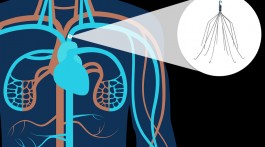In June 2021, Philips Respironics issued a recall on its ventilators, BiPAP, and CPAP machines. Philips Respironics is recalling all devices manufactured between 2009 and April 2021. These devices have polyester-based polyurethane (PE-PUR), a foam used to reduce sound and vibration. The U.S. Drug and Food Administration (FDA) stated that the PE-PUR foam may break down and enter the device’s air pathway, allowing for black debris and chemicals to enter the device’s air pathways.
What Philips Respironics Ventilators Have Been Recalled?
Below are the devices that have been recalled by Philips Respironics.
CPAP and BiPAP Devices
| Continuous Ventilator, Minimum Ventilatory Support, Facility Use | E30 (Emergency Use Authorization) |
| Continuous Ventilator, Non-life Supporting | DreamStation ASV |
| DreamStation ST, AVAPS | |
| SystemOne ASV4 | |
| C-Series ASV | |
| C-Series S/T and AVAPS | |
| OmniLab Advanced+ | |
| Non Continuous Ventilator | SystemOne (Q-Series) |
| DreamStation | |
| DreamStation Go | |
| Dorma 400 | |
| Dorma 500 | |
| REMstar SE Auto |
Other Ventilators
| Continuous Ventilator | Trilogy 100 |
| Trilogy 200 | |
| Garbin Plus, Aeris, LifeVent | |
| Continuous Ventilator, Minimum Ventilatory Support, Facility Use | A-Series BiPAP Hybrid A30 (not marketed in US) |
| A-Series BiPAP V30 Auto | |
| Continuous Ventilator, Non-life Supporting | A-Series BiPAP A40 |
| A-Series BiPAP A30 |
What Should CPAP and BiPap Users Do In Response to the Recall?
People with sleep apnea are in need of Philips Respironics ventilators to ensure their safety during the night. When left untreated, sleep apnea can cause a range of problems including anxiety, high blood pressure, heart attacks or strokes. Users should immediately contact their health care provider to find a more appropriate treatment. This could include, but is not limited to:
- Stopping the use of the device
- Using a similar device or alternative treatments
- Continuing to use affected device if the healthcare provider believes benefits outweigh risks
Philips Respironics states that if you continue to use the device, install an inline bacterial filter. Talk to your healthcare provider about using the inline bacterial filter. The FDA states that they do not have enough data on the safety and/or effectiveness of the filter.
What Are the Potential Health Risks of Using a Philips Respironics Ventilator?
Although there have been no reports of death due to using Phillips ventilators, there are potential risks of exposure to the chemicals released from the device. Some potential symptoms include:
- Headaches
- Dizziness
- Irritation of the eyes, nose, skin, and respiratory tract
- Hypersensitivity
- Nausea and/or vomiting
The exposure to PE-PUR could also potentially cause the following:
- Asthma
- Chest pressure
- Sinus infection
- Cough
- Toxic or carcinogenic effects on organs
Qualifying For a Recall Lawsuit
If you have experienced adverse health effects due to the Phillips Respironics ventilator, you may be wondering whether or not you should look into filing a lawsuit against the company. You should contact an experienced Philips Recall attorney who can help your claim and get you the compensation you deserve.
How To Report Problems With Your CPAP or BiPAP Device
If you believe your CPAP, BiPAP, or other ventilator has problems, make sure you report it to MedWatch Voluntary Reporting. Here, patients, consumers, and health professionals can report the effects of medical products to the FDA. This type of reporting can assist the FDA in identifying potential risks when using specific medical devices and products.




No Comment